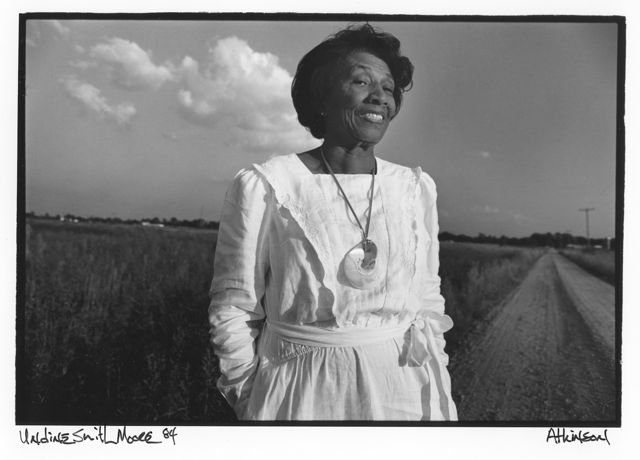Undine Smith Moore is just one of the many African American women living in, what is traditionally, a man’s world of classical music. She was born on August 25, 1904 in Jarratt, Virginia. Beginning piano lessons at the tender age of seven, these lessons would serve as the foundation for her rather successful career as a classical musician and composer.
The genre of music that Moore composed and performed, classical music, originated in Europe. The music of this genre can be classified into different time periods. Music from each period has various characteristics that distinguish one time period from another. Even though these pieces may be different depending on when they were written, all classical music had similar forms (i.e. sonatas and symphonies) and instrumentation (i.e. piano, strings, woodwinds). Even in modern genres, there are still some classical music elements that linger such as the chorus of a song or the emotions and mood of baroque music that can be found in the rock genre. As more and more Europeans migrated to the United States, they were fortunate enough to bring all aspects of their culture with them and that included their music. This music endured war and even changed in some ways as time went on. Before the Civil War, African Americans had very few opportunities to learn to play or compose classical music but after the war more opportunities came about. Once African Americans were freed–circa 1863 (even though the Emancipation Proclamation was signed in 1863, some slaves were not notified of this until June 19th 1865, two months after the Civil War ended)– some studied music and trained at colleges around the country. African Americans gained more opportunities to be classically trained, compose, and even perform in notable public settings.
If you fast forward through time 60 years or so, Undine Smith Moore received the first scholarship from the graduate school at Julliard so she could study music at Fisk University. She graduated in 1926, taught at Virginia State University while simultaneously studying for her Master of Arts degree. Moore did not stop there, after getting married and having a child she went on the teach at various colleges and universities while composing her music.
Undine Smith Moore has composed numerous works of classical music. Arguably, her most popular work is “Afro-American Suite” which she composed in 1969. “Afro-American Suite” is comprised of four movements. The first movement “I. Andante”, named for the moderately slow tempo of the music, begins with a rather rich timbre that soon changes to one that is eerie and almost ominous. The melody of this movement is played back and forth by a flute and violin while the other instrument not playing the melodic line plays a counter-melody, while the piano remains in the background. This back and forth resembles a call and response which is interesting because African Americans often used call-and-response in their folk and work songs during slavery. [embedyt] https://www.youtube.com/watch?v=QN8NN9Vj1xc[/embedyt] The second movement “II. Allegro molto e marcato” is faster tempo, has marcatos–strong accents–throughout the melody, and has a bright and vibrant timbre. [embedyt] https://www.youtube.com/watch?v=fuvFH_dKajA[/embedyt] The third movement “III. Adagio ma appassionato”, meaning slowly with passion, has a deep timbre and slower tempo with the melody moving between flute and cello. [embedyt] https://www.youtube.com/watch?v=gn0d0U2F4sA[/embedyt]Finally, the last movement “IV. Allegro molto” is yet another movement that is bright and vibrant. [embedyt] https://www.youtube.com/watch?v=_B-ZXa9dsIQ[/embedyt]This last movement of this suite almost captures an emotion of happiness, perhaps the same happiness and joy that African Americans felt when they were finally free.
This particular suite, as well as many of Moore’s other pieces and the works of other notable African American classical musicians were sold as sheet music and performed by various professional ensembles. That is how these classical musicians made a profit off of their work. There is a lot to be said about the fact that many African American classical musician like Moore receive little to no recognition for their work. Even in this new age of being “woke” and giving credit and recognition where it is due almost nothing gets said about the African American women and men in this particular genre of music. This bit of text is not even close to all that could and should be said about Undine Smith Moore, or any African American classical musician for that matter: but at least it is a start.


